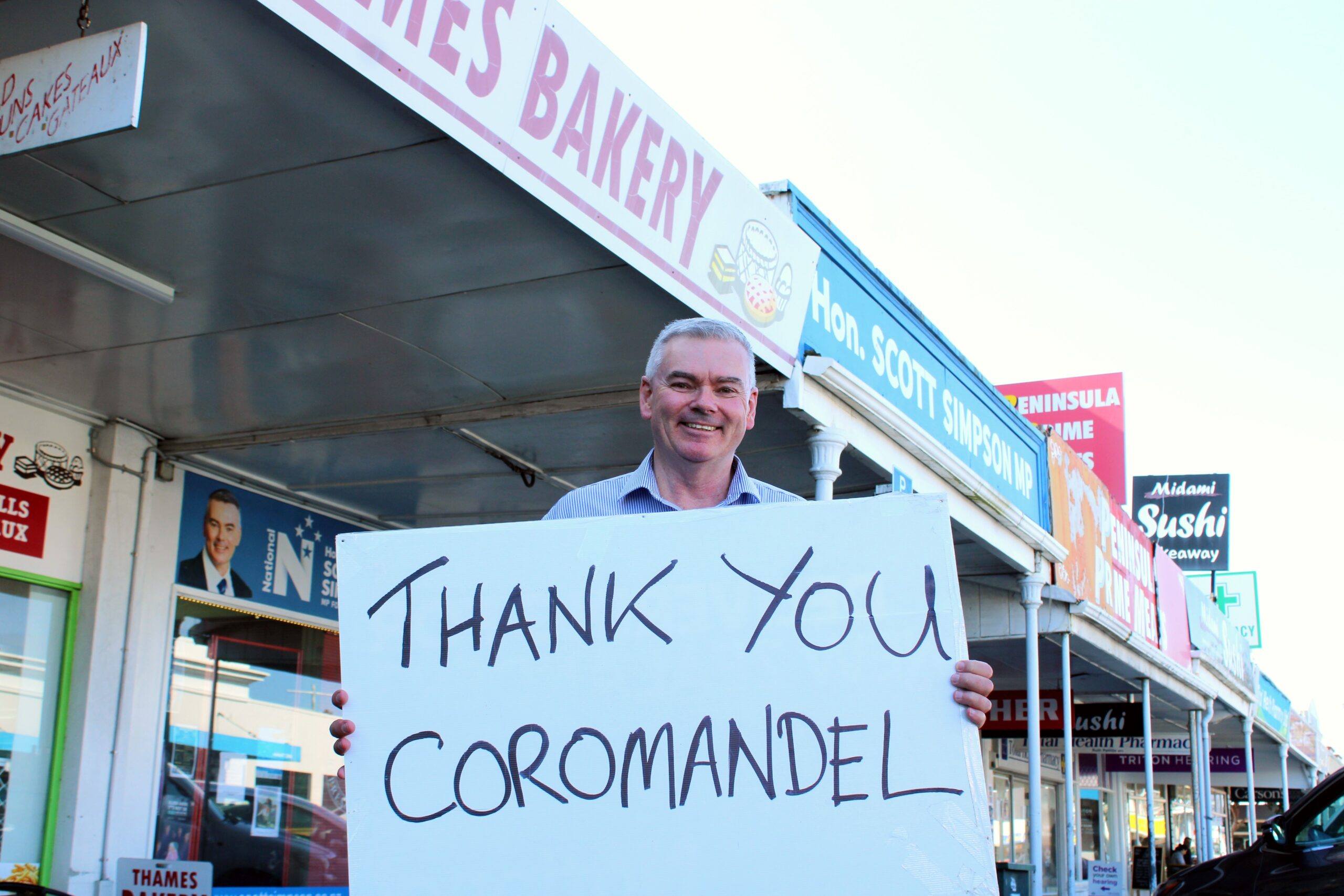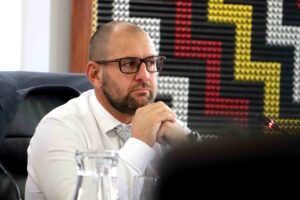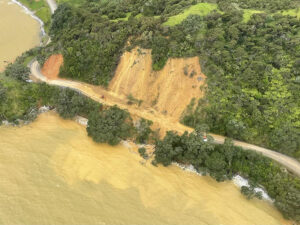Scott Simpson still remembers his first election night back in 2011.
He says 12 years on, the excitement hasn’t faded – nor have the nerves.
“You always have butterflies in your tummy leading into election night, but I had a really good and large team of supporters and volunteers from the National Party around the electorate,” he says. “Politics is an addictive drug… the adrenaline pumps, the excitement builds, and the thrill of the contest and the opportunity to use the result to do good, doesn’t go away.”
Throughout the years, the number of ticks marked next to Scott’s name have been steady, but this weekend’s general election saw him rake in one of his highest – 20,950.
That’s 14,596 ahead of the second highest-polling Coromandel candidate, Labour’s Beryl Riley – who Scott says sent him a “very nice” email following the preliminary results.
But with roughly 567,000 special declaration votes still to be counted, Scott tells The Profile that the National Party will “wait and see” if there’s any shift.
So far, they have just obtained the 61 seats needed to form a government alongside the ACT Party.
“I think a lot of the overseas votes will be from people who are still more than a little bit grumpy about the way they were treated during the Covid lock-outs,” Scott says.
“And working with ACT is not unusual – we have a traditional and good working relationship with the party.”
Scott mentions the “blue wave” that swept over the country on election night, and when he’s asked what the core differences are between a blue wave and a red wave, he says there are some “very basic differences” between the two major parties.
“We on the centre-right have the view that the less government in your life, the better. On the centre-left, the view is usually that centralising and running things out of Wellington is best.
“We think New Zealanders are the best stewards of their own finances and money. We think that individuals and families know how to better manage their own budgets. We think that taxpayers’ money needs to be more respected than has been over the last six years.
“We also think we need to send some much stronger messages about people’s responsibilities as citizens – respect for law and order, respect for individual rights and freedoms… these are basic fundamental differences between us and the political left.”
But Scott also welcomes a difference of opinion, and says politics by nature is a “team and tribal exercise”.
“There’s nothing wrong with having views and opinions and expressing those, but what is increasingly problematic is that these days many people seem to find it difficult having discussions and debates about policies that might be different to their own views without playing the person,” he says. “Just because someone has a different political view or opinion to you, doesn’t make them a bad person.”
He says overall, this year’s election campaign was “very negative”, but he thanks the Coromandel voters for their “personal endorsement”.
“Sadly there was, in my view, too much discussion and playing of personalities rather than policies and I don’t know if that is helpful,” he says.
“But I really love the job – for me, it’s actually not work, it’s a passion. It’s something I never take for granted… and I’m looking forward to instead of being in Opposition, being part of a new government, a new direction, and I know it will be of as much benefit to Coromandel people as it will be to the whole country.”
BY KELLEY TANTAU





